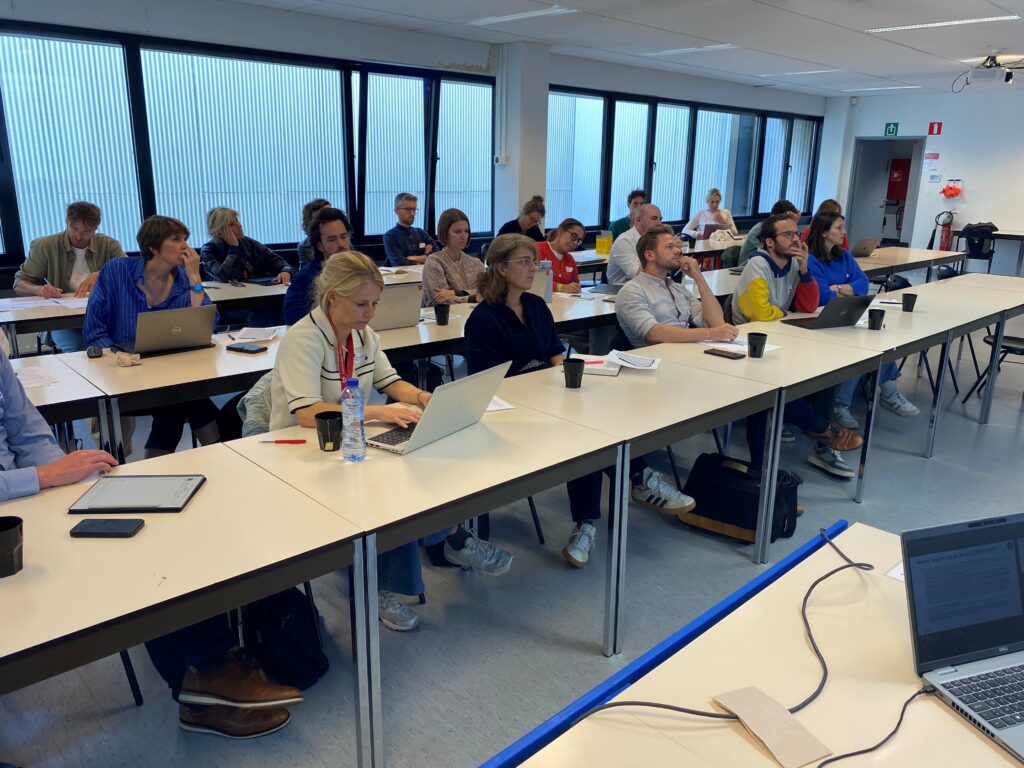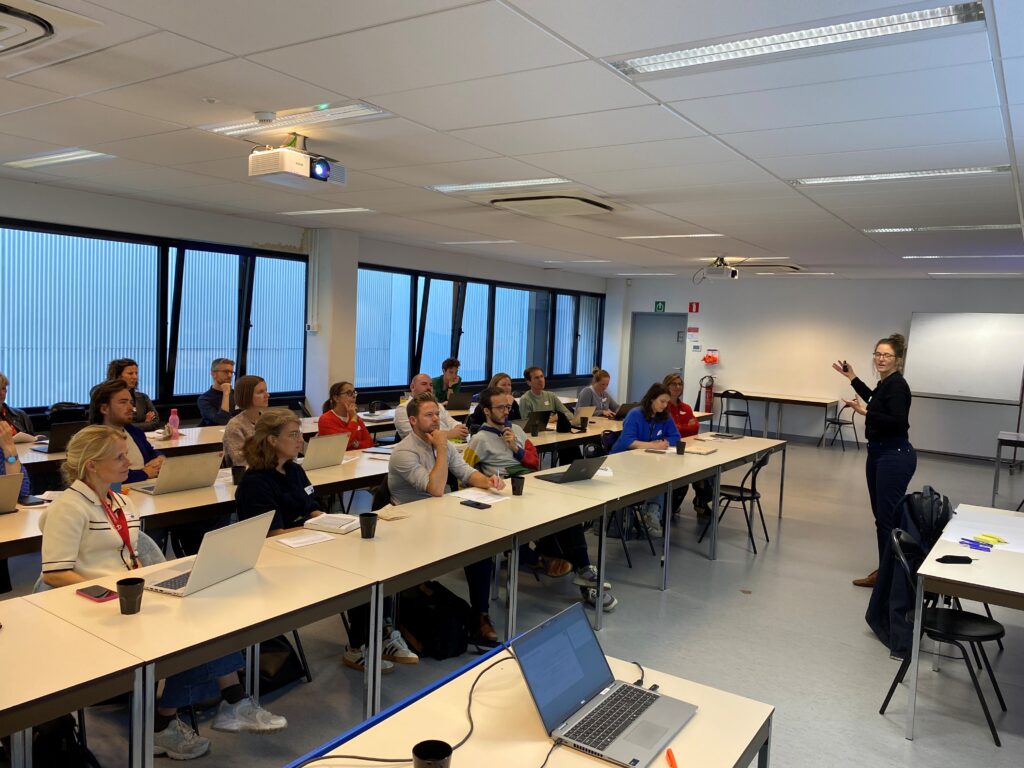What makes a city healthy? And how can the university contribute to this health from different disciplinary perspectives? These were the questions behind an interfaculty reflection session organised by Lieven Janssens (Social Sciences), Jasna Loos (Medicine and Health Sciences) and Caroline Masquillier (Social Sciences & Medicine and Health Sciences). Sixty academics from a wide range of disciplines (Social Sciences, Medicine and Health Sciences, Design Sciences, Law, Business and Economics, Applied Engineering, Arts), as well as colleagues from Antwerp University Hospital and our association partners AP and KdG, exchanged ideas on how interdisciplinary thinking and collaboration can help make Antwerp a healthy city.
Jasna Loos (research manager at Medicine and Health Sciences) and Lieven Janssens (coordinator of the Centre of Expertise in Public Governance at Social Sciences) share the conviction that academic work is only truly significant when it’s rooted in social challenges. Yet the answers to major social issues are rarely found within a single discipline. ‘Health isn’t an isolated policy domain,’ says Lieven. ‘Its links with the environment, wellbeing, sustainability, social inclusion and mobility are much stronger than we often realise. We need a broader framework for thinking, which is why we organised this interfaculty reflection session.’
‘The answers to major social issues are rarely found within a single discipline.’
– Lieven Janssens

Combined strengths spark new ideas
Jasna, Lieven and Caroline didn’t have to do much convincing to bring participants on board. After all, it concerns a broad topic in which many colleagues are already active. ‘The enthusiasm was remarkable,’ says Lieven. ‘As soon as the discussion got going, connections were made and ideas began to flow.’ For instance, participants quickly saw the potential of bringing together research on healthy urban childhoods, on attracting healthcare staff, and on using policy questions from the City of Antwerp as the basis for master dissertations.


Four quadrants for a healthy city
More than 80 research projects now fall under a new integrated framework built around four quadrants: healthcare and wellbeing; lifestyle and living environment; policy frameworks and prevention; and children, young people and neighbourhoods. Projects such as CityMove (on the impact of active urban environments on non-communicable diseases) and the evaluation of the Smakelijke Scholen intervention (nutritious school meals for children in Antwerp) are already demonstrating their value for the city’s health policy. Recommendations from the strategic health plan, in which the Faculty of Medicine and Health Sciences played an active role, have also been included in the City of Antwerp’s coalition agreement.

‘The dynamic is growing from the bottom up. Researchers are eager to collaborate on health-related topics. If we can build on that by establishing a regular consultation platform with the City of Antwerp, there will be plenty of opportunities and possible connections to explore.’
– Jasna Loos
Collaboration with the city as a catalyst
Collaboration with the City of Antwerp is crucial. Building on the Antwerp Health Harbour initiative, discussions are now underway to establish a city academy for health. Such a structural partnership promotes knowledge sharing, more practice-oriented research, stronger social valorisation and access to international funding opportunities.
‘It really is a two-way street,’ says Caroline. ‘The city presents us with concrete urban health challenges, on the basis of which we can formulate relevant research questions and collaborate with the right local stakeholders. In turn, we provide the city with scientific insights that help shape an evidence-based health policy.’ A win-win for both sides.
‘It’s similar to the “academic workplaces” in the Netherlands. This ties in perfectly with the rector’s ambition to strengthen the university’s connection with the City of Antwerp and the wider region, thereby playing an even greater role in society and the major transitions and challenges taking place there,’ adds Lieven. As the rector’s special envoy, he’s also responsible for maintaining strategic relations with the Flemish government and local authorities.
‘It’s a win-win for us and for the City of Antwerp. The city presents us with concrete urban health challenges. In turn, we provide the city sientific insights for an evidence-based health policy.’
– Caroline Masquillier

First actions and next steps
In the coming months, two interdisciplinary working groups will be established: one focusing on healthy childhood development, and another on attracting and retaining staff in healthcare and wellbeing. At the same time, concrete progress is expected towards a formal long-term collaboration with the City of Antwerp and the recruitment of a postdoctoral researcher to coordinate the process.
Shaping the future
The city academy for health illustrates the power of collaboration across disciplines and sectors. Social relevance, regional cooperation and scientific excellence go hand in hand.
‘For me, this is exactly why I work at a university,’ concludes Jasna Loos. ‘To join forces with policymakers, colleagues from different disciplines, healthcare providers, patients and communities in the search for answers to today’s major health challenges — and, in doing so, to help make the future a little brighter, especially for the most vulnerable groups.
Want to know more or join the initiative?
Research groups or staff members are still welcome to join.
Contact Jasna Loos (Medicine and Health Sciences) or Lieven Janssens (Social Sciences)


